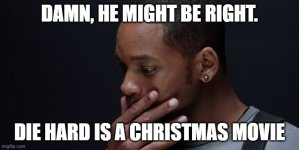UnexpectedLuggage
Wannabe writer
- Joined
- Nov 8, 2024
- Posts
- 452
That's a good question.I’m curious about your opinion of what counts for sex. I recently had this come up in a story I wrote.
Story is 15k words long. 12k of that is the breaking down of the traditional mother/son dynamic so that they can get to the sex. There are about 2000 words of foreplay and teasing. Actual intercourse is 2 paragraphs (about 200 words).
Would this have irritated you or would the 200 words been a payoff for the previous 2000?
I think, for me, it's a matter of the payoff. Foreplay is fine, but I think 200 words would feel a little lackluster. Then again, if the story itself is really good I may not even notice, but I just know I've been disappointed by far too many stories with great lead up and what amounts to "and then they fucked" being the payoff and it always leaves me wanting more.
